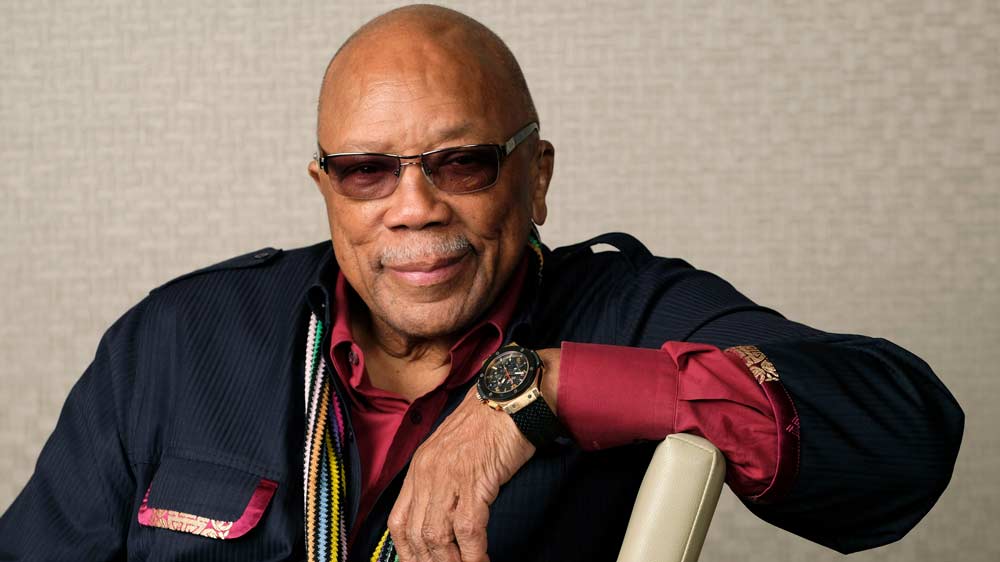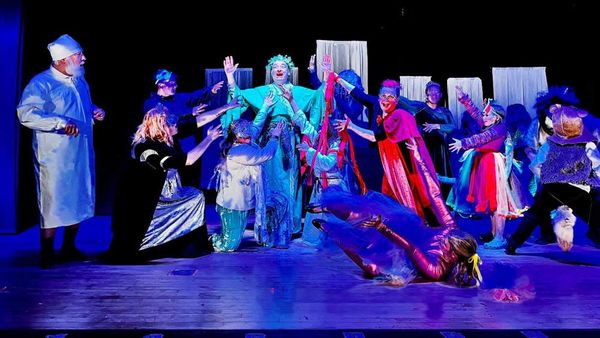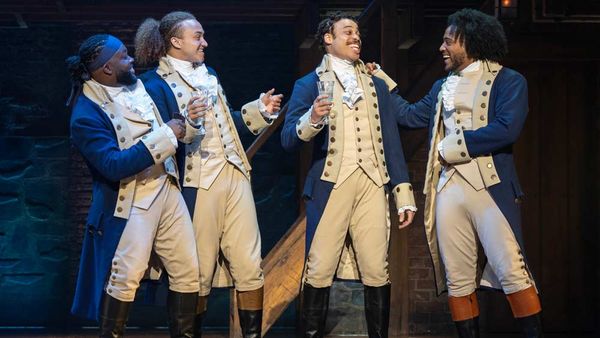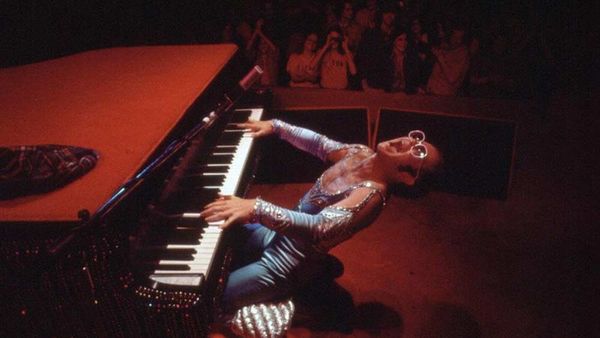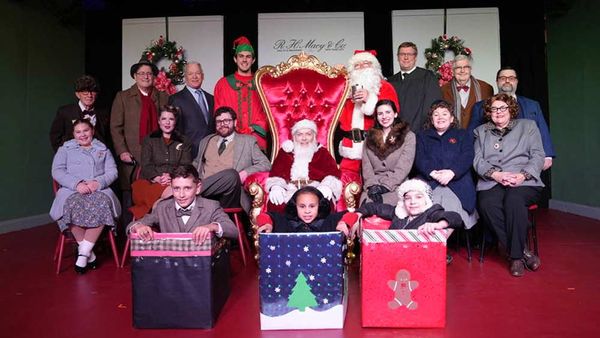March 3, 2011
The Hotel Nepenthe
Kilian Melloy READ TIME: 3 MIN.
Step into the Actors' Shakespeare Project's newest production, and you'll feel as though you've stumbled into an alternate universe. For one thing, this marks the ASP's first brand-new, modern play--and it's written by company member John Kuntz.
For another thing, Kuntz's play really does take place in an alternate universe--or, rather, several of them. A cast of four actors (Daniel Berger jones, Marianna Bassham, Georgia Lyman, and John Kuntz) portray an array of characters, some of whom are the same people in different realities: a murder victim in one version of the universe is a scheming, dissatisfied wife plotting her husband's downfall in another; a worn-out single mother in one reality is a glamorous young star in a different iteration.
And yet, the diverging strands of possible histories keep knotting up in familiar ways: a family faces certain tragedy in a car crash at the local "Sparkle Mart," and certain lines of dialogue flutter from the mouths of certain characters as realities shift, only to land in the mouths of others.
If these realities stream out like multi-colored handkerchiefs from a magician's sleeve, then the font, or the locus, is a place called The Hotel Nepenthe (pronounced "Nepenthey"). The hotel's guests and residents are the self-same people who we meet in different guises; the hotel seems to be a kind of prism, offering many views of the same lives, only they are lives lived differently every time.
The idea comes straight from modern physics, which has for decades contemplated a "multiverse" of countless diverging paths--or, more recently, a universe the throbs with all possible outcomes, with the only thing filtering and organizing the chaos being the lens of the human mind. The limits of our own consciousness, in other words, gives us the impression of a linear world.
Kuntz cleverly ties this into a metaphor we can all relate to: television. If God is an observing intelligence capable of seeing all of the universe's unfolding pathways, then the closest we can come in this life to a God-like experience of omniscience is channel-surfing. Think of the TV as the universe: it contains a plethora of wildly differing series, many of them featuring the same actors.
The metaphor is underscored by the presence of video monitors (also handy for poking fun at the vanity of the rich and famous), and a cavalcade of TV themes from yesteryear--everything from One Day At A Time to The Munsters to Barney Miller to The Odd Couple. TV also permeates the narrative: there are references to Knight Rider, Bewitched, and the king of all TV shows when it comes to things like parallel universes, Star Trek.
But this isn't a mere mashup of pop culture. Kuntz's writing is acerbically funny, and darkly, richly intelligent: "Buses come to you when they feel like it," gripes a taxi passenger; "They're like cats!" Parallel that with a madcap late-night conversation between a bewildered young man who actually managed to catch the bus, and the vehicle's driver--a chat that takes a turn into the fretful precincts of free-floating anxiety and existential terror.
Like that other shadowy locale of the strange, The Twilight Zone, The Hotel Nepenthe carries its own odd vibration. The set, by director David R. Gammons, is essentially a series of dressing rooms and a sloppy collection of furnishings and props--all the better to capture a sense of provisional order.
The lighting design, by Jeff Adelberg, is mercurial and yet specific to each scene: sometimes the light seems soft and safe, and at other times it's menacing. At one point, a simple encounter between two men seems to be a cruz where worlds collide over and over, like a record with a skipping needle--only the song does not remain exactly the same.
Nor does the lighting: the effect is as dazzling as a discotheque, and as much fun. Bill Barclay's sound design is as split-second precise as the lightning-swift lighting changes, and you just know he had fun with all those old TV themes. Technical director Jared Coffin deserves kudos for bringing all of this together, as does Gammons.
They say that the only constant is change. Physicists think that this is more literally true than we know; Kuntz and Gammons take the stupefying possibilities, and turn them into a crystalline work of theatrical art. If changing reality to our own preferences were possible, one might wish for The Hotel Nepenthe to have a longer run; as it is, we must content ourselves with a brief passage through the eye of an inter-dimensional storm, because this is only the second of a three-point event, the ASP's Winter Festival. The third and final leg of this thrilling journey--which kicked off with a jam-tastic take of Shakespeare's play Cymbelene--will be another contemporary play, John Lipsky's Living in Exile.
Kilian Melloy serves as EDGE Media Network's Associate Arts Editor and Staff Contributor. His professional memberships include the National Lesbian & Gay Journalists Association, the Boston Online Film Critics Association, The Gay and Lesbian Entertainment Critics Association, and the Boston Theater Critics Association's Elliot Norton Awards Committee.
